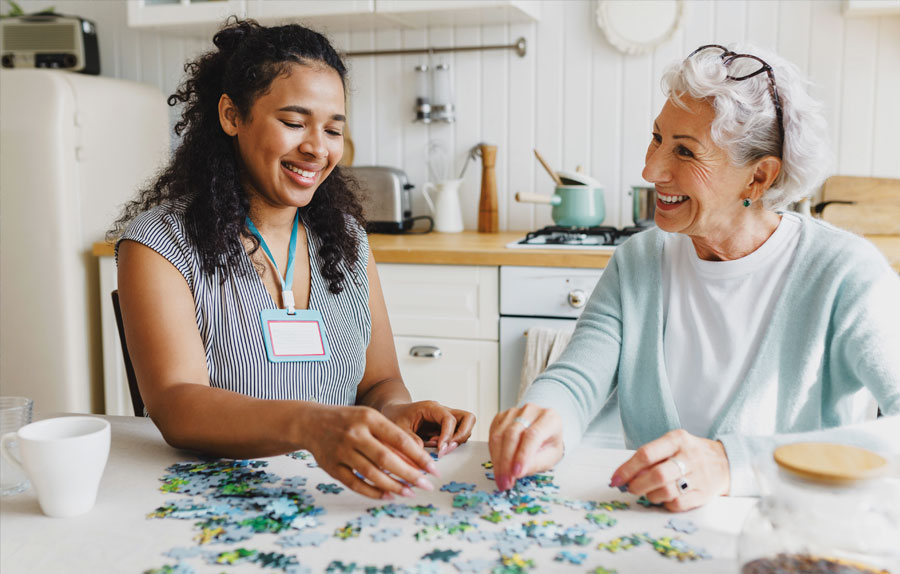 Most of the qualities that make a great carer are obvious, but there is an essential one that rarely gets mentioned, says Helen Budworth
Most of the qualities that make a great carer are obvious, but there is an essential one that rarely gets mentioned, says Helen BudworthThere is no question that we have an ageing population. According to the Office for National Statistics, life expectancy at birth in 1930 was just 58 for men and 62 for women.
I consider myself very lucky in having only recently lost my father, aged 93, and still have my mother, soon to be 93. There is now a 33% chance of living to 90 if you are female and 22% if you are male. While this is great, living to such an age without needing any care services is very unusual.
People of my parents' generation tend to be very stoic, convinced that they can cope, resistant to the acceptance of help, particularly if it is referred to as 'care'. If someone is bedridden there is no option but to have 24/7 care, whether that is in residential care or at home. The difficulty comes when our parents are seemingly still able, but less so than they once were.
Broaching the subject is a delicate matter and, most often, unwelcome. The best advice I can offer anyone is to not leave it too late. All too often the resistance to acceptance wins until it is too late, then there is no option but to put a carer in place.
However, so many times we have seen and heard about the general health and quality of life overall improving simply because the right level of care has been put in place at the right time. Simply having someone there to be a watchful eye, prepare food and ensure that the right amount of fluid is drunk is invaluable.
Once the hurdle of acceptance is overcome, what should you look out for in a carer? It goes without saying that great carers go beyond merely providing physical assistance. They also provide emotional support, not only for the individual but also the family, giving them reassurance that their loved one is in the best hands.
They say one should never Google, but if you use it to search for what qualities make a great carer, you find words such as empathy, compassion, patience, understanding, knowledge, professionalism, skills, flexibility, adaptability, respect and good communication skills. It is difficult to say which of these is most important.
However, what is absolutely key but is rarely mentioned in any such list, probably because it is unquantifiable and very difficult to convey in writing, is chemistry.
A potential carer might be hugely qualified and very experienced, but all of that goes out of the window if they don't get on with the person they are looking after (or vice versa).
Finding a great carer is akin to finding a great nanny (something most will be able to relate to, rather than recruiting a carer).
Twenty-five years ago, when I was recruiting a nanny for my boys, I was presented with several highly qualified people, and one who was experienced in life but not nannying. I rejected her after reading her CV but was persuaded to interview her by the agency I was using.
I did, and when she drove away from the interview I wanted to run down the road after her, waving my arms and shouting 'come and look after my boys'. She did, and became like a third grandmother to James and Will. The bond between 'Cri Cri' and not only the boys but our entire family remained until her death. Chemistry is key.








